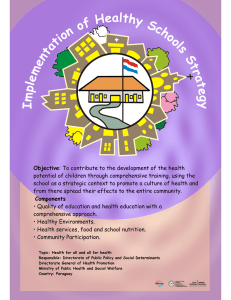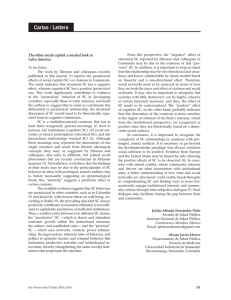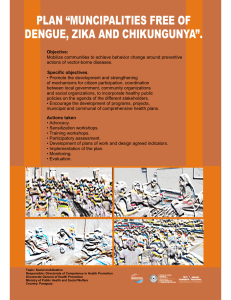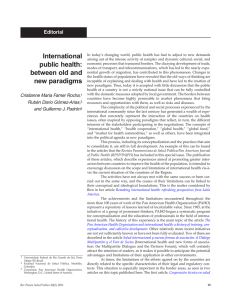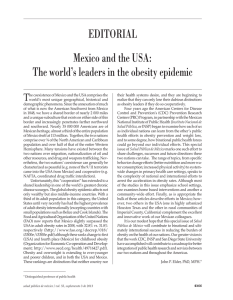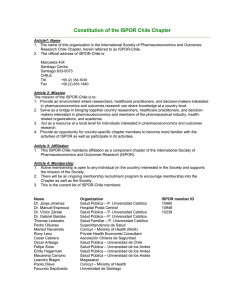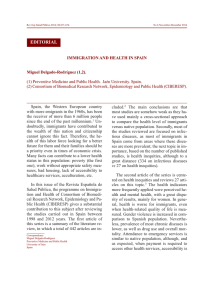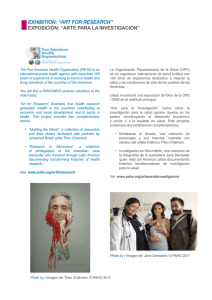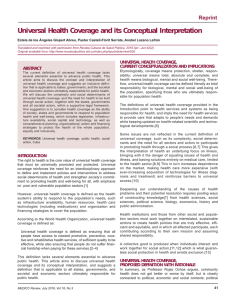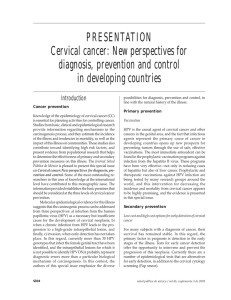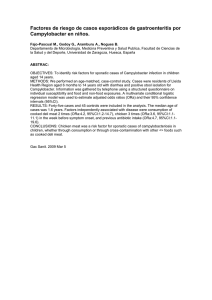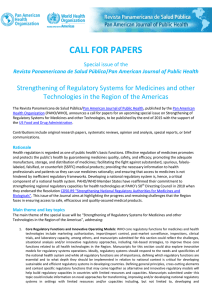The community study has begun
Anuncio
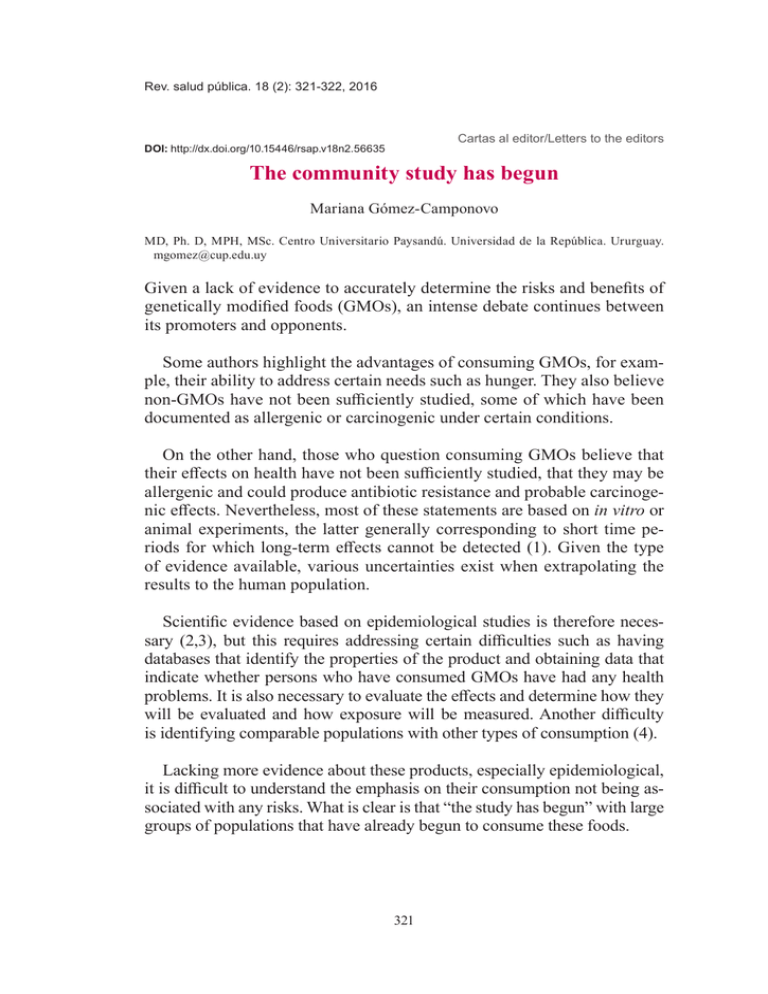
Rev. salud pública. 18 (2): 321-322, 2016 Cartas al editor/Letters to the editors DOI: http://dx.doi.org/10.15446/rsap.v18n2.56635 The community study has begun Mariana Gómez-Camponovo MD, Ph. D, MPH, MSc. Centro Universitario Paysandú. Universidad de la República. Ururguay. [email protected] Given a lack of evidence to accurately determine the risks and benefits of genetically modified foods (GMOs), an intense debate continues between its promoters and opponents. Some authors highlight the advantages of consuming GMOs, for example, their ability to address certain needs such as hunger. They also believe non-GMOs have not been sufficiently studied, some of which have been documented as allergenic or carcinogenic under certain conditions. On the other hand, those who question consuming GMOs believe that their effects on health have not been sufficiently studied, that they may be allergenic and could produce antibiotic resistance and probable carcinogenic effects. Nevertheless, most of these statements are based on in vitro or animal experiments, the latter generally corresponding to short time periods for which long-term effects cannot be detected (1). Given the type of evidence available, various uncertainties exist when extrapolating the results to the human population. Scientific evidence based on epidemiological studies is therefore necessary (2,3), but this requires addressing certain difficulties such as having databases that identify the properties of the product and obtaining data that indicate whether persons who have consumed GMOs have had any health problems. It is also necessary to evaluate the effects and determine how they will be evaluated and how exposure will be measured. Another difficulty is identifying comparable populations with other types of consumption (4). Lacking more evidence about these products, especially epidemiological, it is difficult to understand the emphasis on their consumption not being associated with any risks. What is clear is that “the study has begun” with large groups of populations that have already begun to consume these foods. 321 322 REVISTA DE SALUD PÚBLICA · Volumen 18 (2), Abril 2016 REFERENCES 1. EFSA GMO Panel Working Group on Animal Feeding Trials. Safety and nutritional assessment of GM plants and derived food and feed: The role of animal feeding trials. Food and Chemical Toxicology. 2008; 46: S2–S70. 2. Tormo DM. Los alimentos modificados genéticamente y la epidemiología actual. Rev Esp Salud Pública. 2000; 74;211-214. 3. Hilbeck A, Binimelis R, Defarge N, Steinbrecher R, Székács A, Wickson F et al. No scientific consensus on GMO safety. Environmental Sciences Europe. 2015; 27:4. 4. Mendoza C, Viteri FE, Lönnerdal B, Young KA, Raboy V, Brown KH. Effect of genetically modified, low–phytic acid maize on absorption of iron from tortillas. Am J Clin Nutr. 1998; 68:1123–7.
